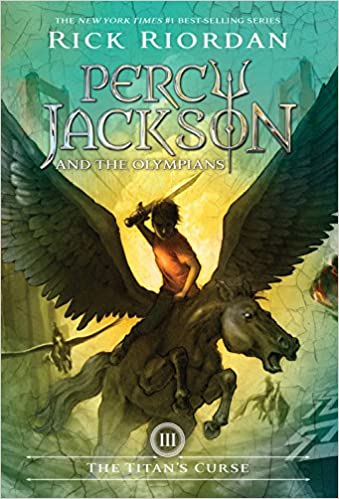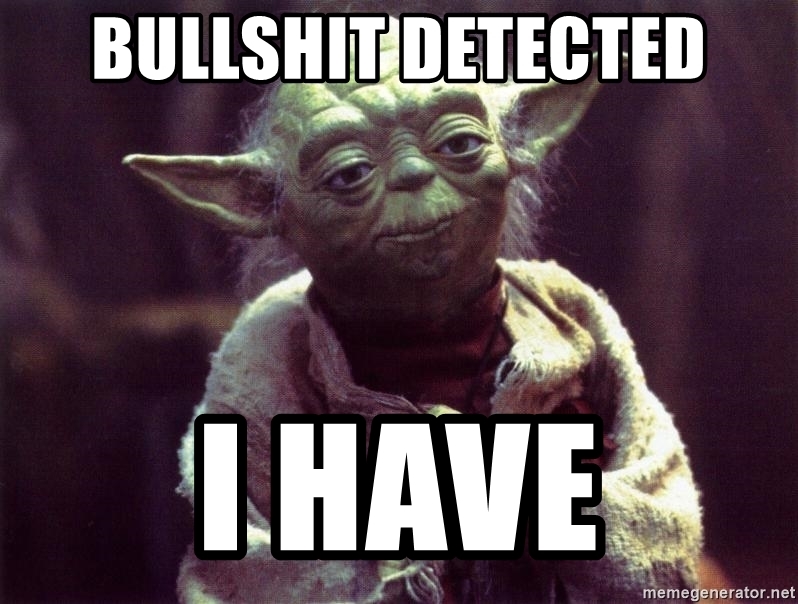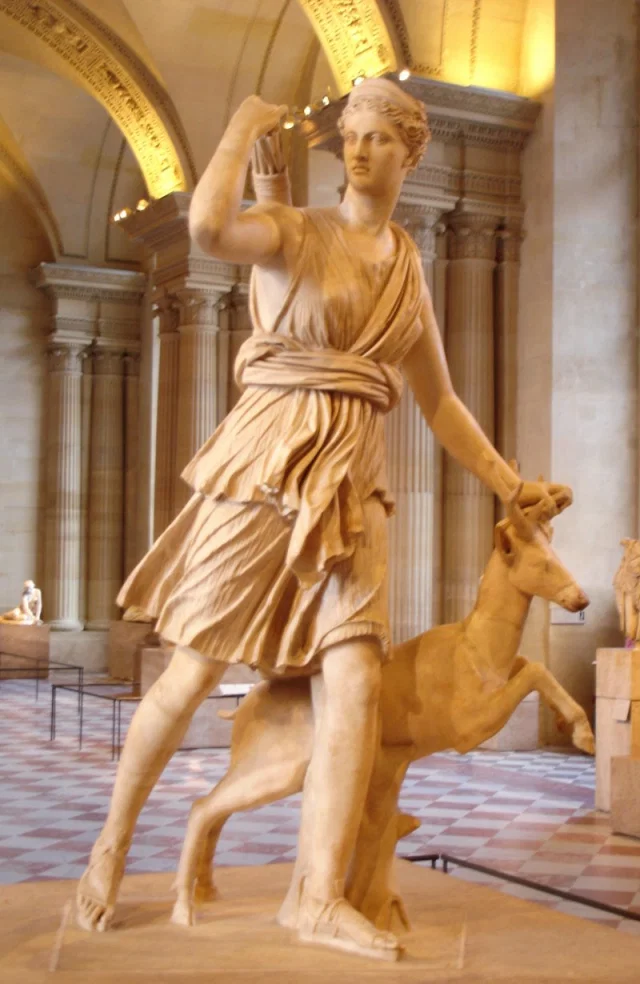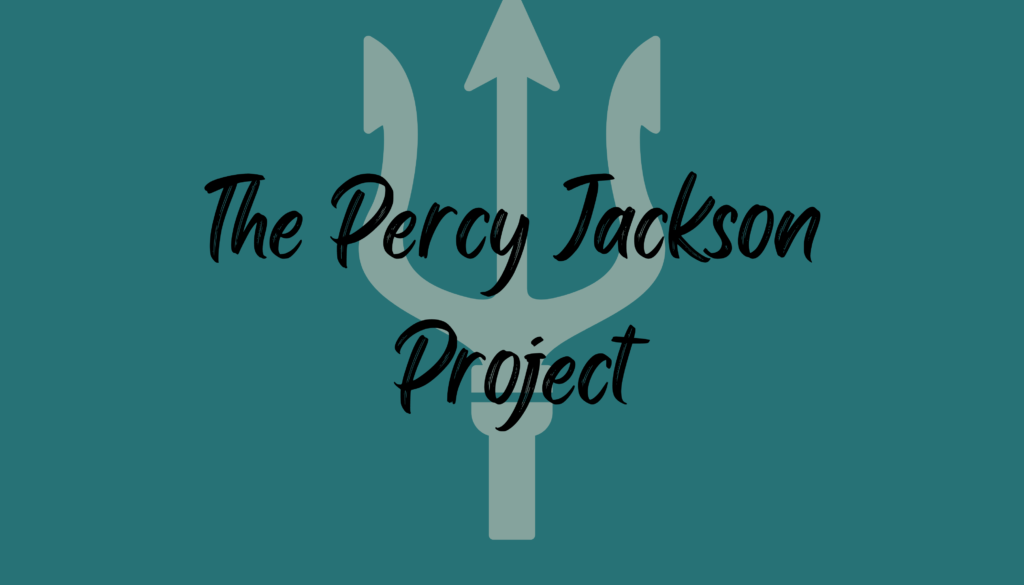Percy Jackson Project: The Titan’s Curse
We are onto book three of the Percy Jackson Project and in case you weren’t aware from my previous posts THESE ARE SPOILER HEAVY so don’t keep reading this if you have not read The Lightning Thief, The Sea of Monsters, and The Titan’s Curse.
OK? Are we good now? Are you sufficiently warned? Great, so, whew, where do I start?

Firstly, I really liked The Titan’s Curse. I have been in a bit of a reading funk lately, and this book picked me right up out of it. One thing that I love about Percy Jackson is how it is both high stakes and low stakes at the same time. Everything is urgent, but at the same time the characters are always thoughtful about their actions. I do not mean to say that Percy and his fellows do not act impulsively, because Percy is very impulsive, but there is a fluent logic in every action that is quite easy to follow. There is nothing confusing about Percy Jackson. The vision of the book is laid out clearly before the reader, but at the same time, things are occluded in a way that I was not bored while reading. Even though I am familiar with mythology I was genuinely surprised when I discovered that the villain of the story was Atlas, and that the Titan’s curse was the burden of holding up the world. There were many predictable elements to the text—as is natural when you are an adult reading a children’s book—but I was pleased to find myself surprised at certain moments.
One surprise that I am of two minds about is Thalia’s decision to join the Hunters. It was very convenient for the narrative that Thalia’s amalgamated age had her turn 16 on the Winter Solstice—a day that was already charged with meaning from it being the time that the gods held council and because it was the deadline that the General had set for when he could kill Annabeth. This decision more than anything reminded me that what I am reading was a children’s book. This is the Percy Jackson series, not the Thalia series, and so obviously the prophecy is about Percy and not Thalia. And it was also obvious, looking back on the story, that Thalia was not going to die. She is simply too important to the story as a fellow child of the ‘Big Three.’ Then again, so was Bianca….
But I digress.
On the other hand, Thalia’s decision does make a kind of sense—joining the Hunters frees Thalia of the responsibility of the prophecy, of a fate she never wanted, and it protects her from the forces of Kronos, Zeus, and the evils that are seeking to change up the world of the gods. True, she now must swear off men, but in her short life, men and boys have done a great deal to hurt her, so it makes a kind of sense that she would do so. And after witnessing the strength of Artemis and Zoë, it is understandable why Thalia would make this choice.
Speaking of Artemis and Zoë, I am brought to the main quibble I have with this book. Namely, the binary way in which it looks at gender and relationships between those categorized as male and those categorized as female. The disdain that Artemis had for men is legendary, but I am still displeased to see such a strong binary enforced and in particular I am distressed by the emphasis placed on youth and the need to recruit girls as hunters before they have interactions with boys and men. The fact that Artemis chooses to embody the form of a twelve-year-old is particularly disturbing to me. The gods can of course take any form they wish, but Artemis says in the book that she takes this form because it is the average age of her Hunters. She claims it is because this is the age before girls “Grow up. Become smitten with boys. Become silly, preoccupied, insecure. Forget themselves.” and to that I just have to call BS.

The idea that after the age of twelve all girls become silly, insecure, and smitten with boys is both laughable and unimaginative. For one thing, there is zero consideration for girls who may be gay, asexual, demisexual, or any variation therapon and/or who have no interest in boys. That is to say nothing of the fact that there is no consideration for genderfluid and nonbinary individuals who may or may not be interested in becoming Hunters who will be removed from consideration or placed within the pool or potential recruits against their wishes. Furthermore, we should consider the fact that these Hunters are all children, the youngest ten. Children are smart, capable, autonomous beings that need to be treated with respect, and they are also constantly and consistently undergoing different stages of cognitive development and those shifts mean that until they come of age they should not be forced to make decisions about whether or not they want to commit their immortal lives to serving a goddess.

I am particularly displeased that Artemis is portrayed as the “virgin goddess” archetype in the heteronormative “never had sex” sense for a few reasons. One of those has to do with something that not many people are aware of, which is that in Ancient Greek the word for “virgin” can also simply mean an unmarried girl, depending on the context. I think it is obvious which translation has passed down through the ages. However, my personal interpretation of Artemis is as a goddess of unmarried women and I have always seen Artemis as a goddess who approves of and encourages loving relationships between her Hunters, and so to see all of them — who I view as mature women embroiled in relationships that do include the ranges of romantic and sexual — reduced to preteens was extremely uncomfortable for me, and maybe that’s just because of my personal interpretation of Artemis, but I do know that I’m not the only one who feels this way about the goddess.
Regardless of how one feels about the relationships she and her Hunters have, reducing them all to children does raise many issues regarding consent that are deeply uncomfortable. I was particularly distressed by Bianca’s recruitment to the Hunters, which I interpreted as incredibly predatory. As an orphan, desperate to escape her role as caretaker to her younger brother she was incredibly vulnerable. When one considers how quickly she was then pressured to take on a quest she was undoubtedly unprepared for…. Her death was tragic and while the fact that it was foretold might make some say it was inevitable I do think her fate was unjust and could have been avoided were there more people looking out for Bianca’s best interests and not their own. Her fridging in order to advance Nico and Percy’s arcs is a whole other issue, but that is something I’ll circle back to later in the series, once I have a firmer grasp on Nico’s role in the series.
In the meantime, I have not even gotten to talk about Annabeth! But I will save that discussion for Part II.
Cheers,
Talia
P.S. Never forget that Artemis is the Queer Girl Goddess BFF of Your Dreams

October 22, 2020 @ 21:10
I’m definitely interested in seeing what your thoughts are on the rest of the series (and the related series) when you get there! In terms of queer representation, this is something that I don’t think Riordan was thinking much about in his earlier books, but he does have more representation in his later books (I’m thinking more of The Heroes of Olympus/Trials of Apollo/Magnus Chase). Without going into spoilers for Percy Jackson specifically, my feelings about his queer representation is mixed, though I’m glad that he has gone in that direction! (As opposed to retroactively queering characters or ignoring representation all together, like some authors. He knows he has a large audience of young people looking for representation.)
For Artemis and her hunters, I loved reading about your take on them. My guess is that he chose the younger age range to appeal to that age group–as someone who was around Percy’s age when I first started reading these, bow-wielding teenagers definitely appealed. Which may not be the best excuse for aging down a group of females who could definitely be read as queer. If my memory serves me correctly, there are other characters from the mythos who he could have aged down, but kept in the adult age range, so it definitely would have been interesting to see what direction he would have gone in if he didn’t age Artemis and her hunters down. (Though, I guess that is what fanfiction/writing is for–answering the what ifs.)
I haven’t really done a reread of any of the Percy Jackson books since they’ve come out, but it’s nice seeing an adult perspective on the books! I’m now considering a reread. 🙂
October 22, 2020 @ 23:26
Thank you for this thoughtful comment! I’ve heard from a lot of Riordan’s readers that the later books get a lot better with regard to queer representation, which is a large part of why I am sticking things out as of right now but, whew, it’s hard at the moment. I was very frustrated as I noted in this post, but I agree that I prefer the approach of doing better going forward rather than trying to retcon past writing and try to claim that there is representation when there clearly isn’t.
I do understand where you are coming from with regard to why he chose the younger age group for the Hunters, and from that perspective I totally understand it — they would feel otherwise out of place in a children’s story, and the narrative entirely relies on the Hunters existing as they are, but I cannot deny that I struggle with it just because it clashes so much with the ways in which I have personally interpreted the goddess from sources external to this work. I agree that a fanfiction which explored the ways in which the narrative changes in a world where the Artemis and her Hunters are not portrayed as children could be very interesting, and I would like to see it.
I’m glad that you are enjoying my perspective as I make my way through the books! It’s tricky reading kids books as an adult because I have to remember that on the one hand they are not for me so I cannot hold them to the same standard as my own adult reading but on the other hand I want to protect all these children at all costs and am extraordinarily distressed that they have the weight of the world on their shoulders. One of the reasons I like Percy Jackson so much is that so far even with that weight of the world on his shoulders Percy is still given a lot of room to be the youth that he is, though I am getting the feeling that as these books progress we are getting to the point where a lot of that feeling of childhood is going to slip away.
I do encourage a re-read because the adult gaze does give a whole new perspective. I’m calling this a read-through not a re-read because the first time I read PJO I was about 15 or so, and while I more or less remembered the first book that was mostly because I had also seen the movie. I barely remembered the second book, and only elements of the third. I think I read the fourth and fifth because I remember random scenes that weren’t in the first three and I already owned all five before I started this project, but I don’t remember the big picture, or even the clear details and anything about how they fit together, just bits and pieces. I’m excited to see how it all comes together because I remember not liking it the first time, but going through it now I really can’t figure out why except that I was a moody contrarian hipster of a teenager who didn’t want to like the thing everyone else liked. As far as I know these are the same texts now as they were ten years ago when I tried reading them as a highschooler, so it’s me that changed, not the books.